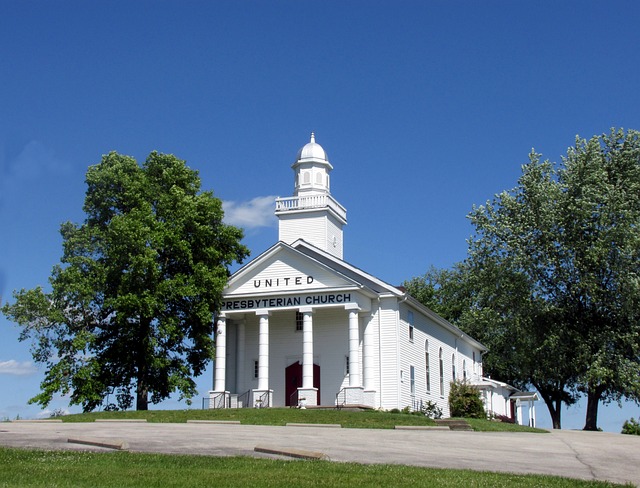Presbyterians do not have godparents because the concept of godparents is not a traditional practice within Presbyterianism.
Table of Contents
Historical Origins of Presbyterianism and the Absence of Godparents
Presbyterians, like many other Protestant denominations, do not have the tradition of godparents. This absence of godparents in Presbyterianism can be traced back to the historical origins of the denomination and its theological beliefs.
Presbyterianism emerged during the Protestant Reformation in the 16th century, when reformers like John Calvin sought to purify the Christian faith from what they saw as corrupt practices and doctrines of the Roman Catholic Church. One of the key theological differences between Protestantism and Catholicism was the emphasis on the individual’s direct relationship with God, without the need for intermediaries such as priests or godparents.
In the Catholic tradition, godparents play a significant role in a child’s baptism. They are chosen by the parents to assist in the child’s spiritual upbringing and serve as mentors and guides in the faith. Godparents are expected to support the child in their religious education and help them grow in their relationship with God. However, Presbyterians believe that this role can be fulfilled by the child’s parents and the entire faith community, without the need for godparents.
Presbyterians place a strong emphasis on the priesthood of all believers, which means that every individual has direct access to God and can approach Him without the need for intermediaries. This belief is rooted in the Protestant doctrine of sola scriptura, which asserts that the Bible is the ultimate authority in matters of faith and practice. Presbyterians believe that the Bible provides all the guidance and instruction needed for a person’s spiritual journey, and therefore, godparents are not necessary for the child’s spiritual development.
Another factor that contributes to the absence of godparents in Presbyterianism is the belief in the sovereignty of God. Presbyterians believe that God is in control of all things and that salvation is solely a result of God’s grace. They do not believe that godparents have any special role in securing a child’s salvation or influencing their spiritual journey. Instead, Presbyterians believe that salvation is a personal decision and responsibility, and it is up to the individual to respond to God’s grace.
Furthermore, the Presbyterian tradition places a strong emphasis on the role of the faith community in nurturing and supporting individuals in their spiritual growth. In Presbyterian churches, the entire congregation is seen as a family, and it is the responsibility of the community to support and encourage one another in their faith. This communal approach to spiritual development means that godparents are not necessary, as the entire faith community takes on the role of guiding and mentoring the child.
In conclusion, the absence of godparents in Presbyterianism can be attributed to the historical origins of the denomination and its theological beliefs. Presbyterians emphasize the individual’s direct relationship with God, the priesthood of all believers, and the sovereignty of God. They believe that the child’s parents and the entire faith community are responsible for their spiritual upbringing, without the need for godparents.
Theological Perspectives on Godparenting in Presbyterianism

Have you ever wondered why Presbyterians do not have godparents? It’s an interesting question that has its roots in the theological perspectives of Presbyterianism. While many Christian denominations embrace the tradition of godparenting, Presbyterians have a different approach. In this article, we will explore the reasons behind this unique perspective and shed light on the theological beliefs that shape Presbyterian practices.
Presbyterianism is a branch of Protestant Christianity that originated in Scotland during the 16th century. It is characterized by its adherence to the principles of Reformed theology, which emphasize the sovereignty of God and the authority of Scripture. These theological beliefs play a significant role in shaping Presbyterian practices, including the absence of godparents.
One of the key reasons why Presbyterians do not have godparents is their understanding of the role of parents in the spiritual upbringing of their children. Presbyterians believe that it is primarily the responsibility of parents to nurture their children’s faith and guide them in their spiritual journey. This belief is rooted in the biblical concept of the family as the primary unit of spiritual formation.
Presbyterians also emphasize the importance of the faith community in the spiritual development of children. They believe that the entire congregation has a role to play in supporting and nurturing young believers. This communal approach to faith formation is seen as a collective responsibility rather than an individual one. Therefore, the idea of assigning a godparent to a child is not necessary within this framework.
Another theological perspective that influences the absence of godparents in Presbyterianism is the belief in the priesthood of all believers. Presbyterians hold that every believer has direct access to God and can approach Him without the need for intermediaries. This belief is based on the biblical teaching that Jesus Christ is the ultimate mediator between God and humanity. Therefore, the role of a godparent as a spiritual guide or mentor is seen as redundant in Presbyterian theology.
It is important to note that the absence of godparents in Presbyterianism does not diminish the significance of relationships within the faith community. Presbyterians value the role of mentors and spiritual guides in the lives of believers, especially young ones. However, these relationships are not formalized through the concept of godparenting.
Instead, Presbyterians encourage the formation of relationships between children and adults within the church community. These relationships are built on mutual trust, respect, and a shared commitment to nurturing the faith of young believers. They are not limited to a single individual but can involve multiple adults who play a supportive role in the spiritual development of children.
In conclusion, the absence of godparents in Presbyterianism is rooted in the theological perspectives of this branch of Christianity. Presbyterians emphasize the role of parents and the faith community in the spiritual upbringing of children. They believe in the priesthood of all believers and do not see the need for intermediaries in the form of godparents. While the absence of godparents may be unique to Presbyterianism, it does not diminish the importance of relationships within the faith community.
Understanding the Role of Elders in Presbyterian Churches
Have you ever wondered why Presbyterians do not have godparents? It’s an interesting question that sheds light on the unique practices and beliefs of Presbyterian churches. In order to understand this, we need to delve into the role of elders in Presbyterian churches and how it differs from the concept of godparents.
Presbyterian churches have a strong emphasis on the role of elders in the congregation. These elders are elected by the members of the church and are responsible for the spiritual guidance and leadership of the community. They are seen as shepherds, guiding and nurturing the flock. This is in contrast to the concept of godparents, which is more prevalent in other Christian denominations.
The role of godparents is often seen as a spiritual mentorship, where a trusted individual takes on the responsibility of guiding and supporting a child in their faith journey. This can involve teaching them about the Bible, praying for them, and being a source of support and encouragement. However, in Presbyterian churches, this role is fulfilled by the elders.
Presbyterians believe that the responsibility of spiritual guidance and mentorship should be shared by the entire congregation, not just a select few. This is why the role of elders is so important. They are chosen from within the congregation and are seen as representatives of the community. They are responsible for teaching and guiding not only children but also adults in their faith.
By not having godparents, Presbyterians emphasize the communal nature of their faith. They believe that everyone in the congregation has a role to play in nurturing and supporting each other’s spiritual growth. This is reflected in the way they approach baptism and the dedication of children.
In Presbyterian churches, baptism is seen as a sacrament that signifies the initiation into the Christian community. It is a public declaration of faith and a commitment to follow Christ. During the baptismal ceremony, the congregation as a whole promises to support and nurture the individual being baptized. This collective responsibility is seen as more important than the individual role of a godparent.
Instead of godparents, Presbyterian churches often have sponsors or mentors who play a similar role in the life of a child. These sponsors are chosen by the parents and are responsible for providing guidance and support in the child’s faith journey. However, their role is not seen as exclusive or limited to just one individual. The entire congregation is seen as a source of support and guidance.
In conclusion, the absence of godparents in Presbyterian churches is a reflection of their belief in the communal nature of faith. They emphasize the role of elders in providing spiritual guidance and mentorship to the congregation as a whole. By not having godparents, Presbyterians highlight the importance of the entire community in nurturing and supporting each other’s faith journey.
Exploring Alternative Forms of Spiritual Guidance in Presbyterian Tradition
Have you ever wondered why Presbyterians do not have godparents? It’s an interesting question that sheds light on the unique practices and traditions of this particular Christian denomination. In this article, we will explore the reasons behind this absence and delve into alternative forms of spiritual guidance that Presbyterians embrace.
Presbyterians, like many other Christian denominations, place a strong emphasis on the role of parents in the spiritual upbringing of their children. They believe that it is the responsibility of parents to nurture their children’s faith and guide them on their spiritual journey. This belief is rooted in the idea that parents are the primary spiritual leaders in their children’s lives.
Unlike some other Christian traditions, Presbyterians do not see the need for godparents to play a formal role in the spiritual development of a child. Instead, they believe that the parents, along with the support of the church community, are fully equipped to fulfill this role. This belief is based on the Presbyterian understanding of the priesthood of all believers, which emphasizes the equal spiritual standing of all members of the church.
In Presbyterian tradition, the church community plays a vital role in supporting parents in their spiritual responsibilities. The congregation is seen as an extended family, providing guidance, support, and encouragement to parents as they raise their children in the faith. This communal approach to spiritual guidance ensures that children receive a well-rounded and diverse range of influences, helping them to develop a strong and personal relationship with God.
While godparents may not have a formal role in Presbyterian tradition, there are alternative forms of spiritual guidance that Presbyterians embrace. One such form is the practice of mentoring. Mentoring relationships are encouraged within the church community, where older, more experienced members take younger members under their wing and provide guidance and support. These mentoring relationships can be particularly beneficial for young people who may be seeking guidance and advice outside of their immediate family.
Another alternative form of spiritual guidance in Presbyterian tradition is the practice of small groups. Small groups provide a space for individuals to come together, share their faith journeys, and support one another in their spiritual growth. These groups often focus on studying the Bible, discussing theological topics, and praying together. They provide a sense of community and accountability, allowing individuals to deepen their faith and develop a closer relationship with God.
In conclusion, the absence of godparents in Presbyterian tradition is rooted in the belief that parents are the primary spiritual leaders in their children’s lives. Presbyterians place a strong emphasis on the role of parents and the church community in guiding and nurturing children’s faith. While godparents may not have a formal role, alternative forms of spiritual guidance such as mentoring relationships and small groups are embraced within the Presbyterian tradition. These practices ensure that children receive the support and guidance they need to develop a strong and personal relationship with God.
Conclusion
Presbyterians do not have godparents because the concept of godparents is not a traditional practice within Presbyterianism.


